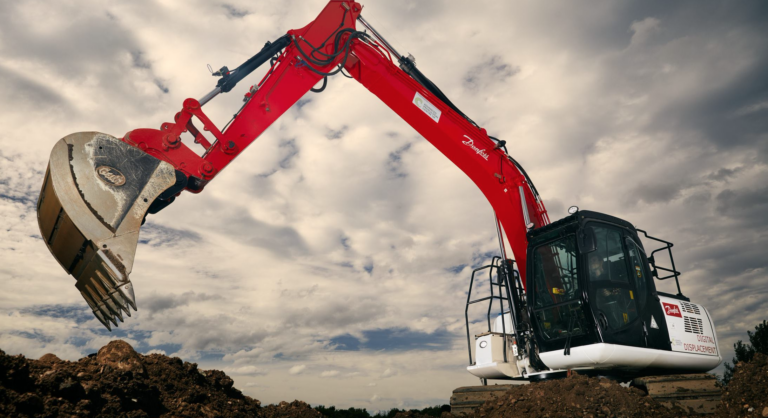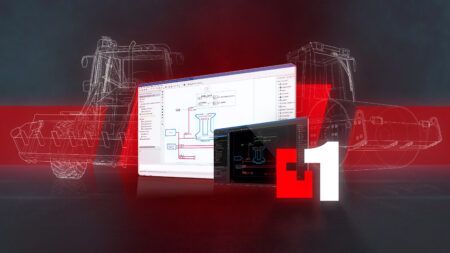New research published by Danfoss shows that combining an electric motor with a Digital Displacement pump in an excavator is the most efficient way to turn battery energy into hydraulic work. The combination can reduce the energy required, and therefore the battery size, for a typical day’s work by 24.8%.
The analysis, presented earlier this year at the prestigious International Fluid Power Conference (IFK) in Aachen, Germany, paves the way to smaller batteries and longer duty cycles for hard to decarbonise off-highway machines. The study was supported by the U.K. Advanced Propulsion Centre, which developed a simulation model of a 16-ton tracked excavator and calculated the energy requirements for a typical eight-hour shift. It compared a base case of an electric machine equipped with a traditional swash plate pump versus an excavator with a Danfoss Digital Displacement system and electric drive.
The results show that, depending on system complexity and the duty cycle, a reduction in energy requirement of up to 24.8% can be achieved. The improved system would require a 314 kilowatt-hour (kWh) capacity battery for an eight-hour shift compared to a 418 kWh battery in the base case.
“Today’s excavators are only 30% efficient, with around 70% of the engine’s energy wasted in the fluid power system,” explained Leif Bruhn, head of digital displacement, Danfoss Power Solutions. “Electric drives have much greater efficiency than internal combustion, but with duty cycles needing upwards of 400 kWh every day, the cost of batteries can be prohibitive.
“Our research has shown that combining an electric drive with a highly efficient Digital Displacement system is the most effective way to turn battery energy into hydraulic work,” Bruhn continued. “This paves the way to smaller batteries and longer duty cycles for the electrically powered excavators of tomorrow.”
Danfoss calculations show that an electrified excavator utilising Danfoss Digital Displacement technology will have a better total cost of ownership than a standard diesel engine within the next five years.
A related study by Danfoss Power Solutions revealed that excavators account for 50% of all carbon dioxide emissions generated by construction machinery. Around 90% of those emissions come from excavators of ten tons or more.





